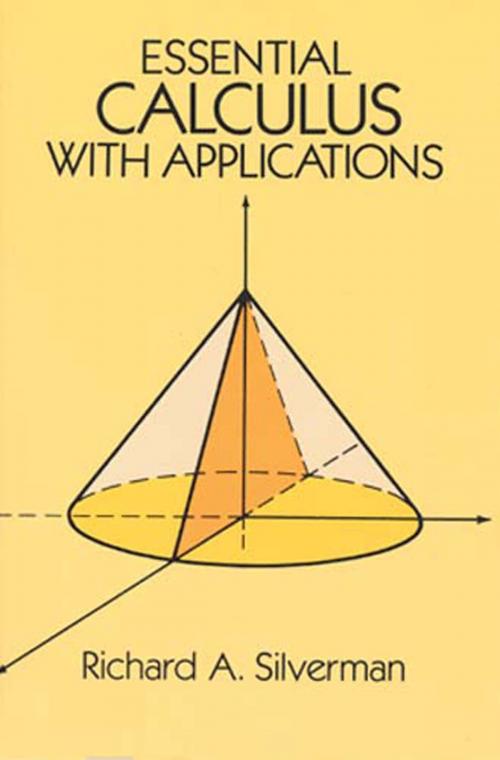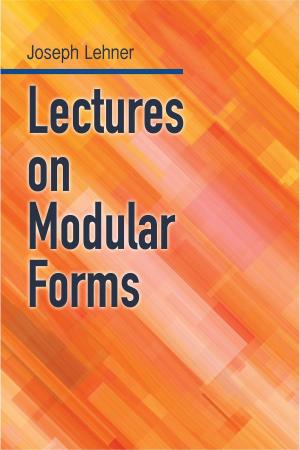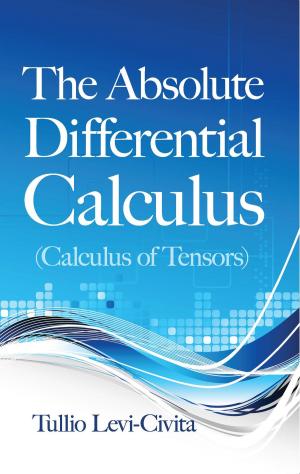| Author: | Richard A. Silverman | ISBN: | 9780486318592 |
| Publisher: | Dover Publications | Publication: | April 22, 2013 |
| Imprint: | Dover Publications | Language: | English |
| Author: | Richard A. Silverman |
| ISBN: | 9780486318592 |
| Publisher: | Dover Publications |
| Publication: | April 22, 2013 |
| Imprint: | Dover Publications |
| Language: | English |
Calculus is an extremely powerful tool for solving a host of practical problems in fields as diverse as physics, biology, and economics, to mention just a few. In this rigorous but accessible text, a noted mathematician introduces undergraduate-level students to the problem-solving techniques that make a working knowledge of calculus indispensable for any mathematician.
The author first applies the necessary mathematical background, including sets, inequalities, absolute value, mathematical induction, and other "precalculus" material. Chapter Two begins the actual study of differential calculus with a discussion of the key concept of function, and a thorough treatment of derivatives and limits. In Chapter Three differentiation is used as a tool; among the topics covered here are velocity, continuous and differentiable functions, the indefinite integral, local extrema, and concrete optimization problems. Chapter Four treats integral calculus, employing the standard definition of the Riemann integral, and deals with the mean value theorem for integrals, the main techniques of integration, and improper integrals. Chapter Five offers a brief introduction to differential equations and their applications, including problems of growth, decay, and motion. The final chapter is devoted to the differential calculus of functions of several variables.
Numerous problems and answers, and a newly added section of "Supplementary Hints and Answers," enable the student to test his grasp of the material before going on. Concise and well written, this text is ideal as a primary text or as a refresher for anyone wishing to review the fundamentals of this crucial discipline.
Calculus is an extremely powerful tool for solving a host of practical problems in fields as diverse as physics, biology, and economics, to mention just a few. In this rigorous but accessible text, a noted mathematician introduces undergraduate-level students to the problem-solving techniques that make a working knowledge of calculus indispensable for any mathematician.
The author first applies the necessary mathematical background, including sets, inequalities, absolute value, mathematical induction, and other "precalculus" material. Chapter Two begins the actual study of differential calculus with a discussion of the key concept of function, and a thorough treatment of derivatives and limits. In Chapter Three differentiation is used as a tool; among the topics covered here are velocity, continuous and differentiable functions, the indefinite integral, local extrema, and concrete optimization problems. Chapter Four treats integral calculus, employing the standard definition of the Riemann integral, and deals with the mean value theorem for integrals, the main techniques of integration, and improper integrals. Chapter Five offers a brief introduction to differential equations and their applications, including problems of growth, decay, and motion. The final chapter is devoted to the differential calculus of functions of several variables.
Numerous problems and answers, and a newly added section of "Supplementary Hints and Answers," enable the student to test his grasp of the material before going on. Concise and well written, this text is ideal as a primary text or as a refresher for anyone wishing to review the fundamentals of this crucial discipline.















